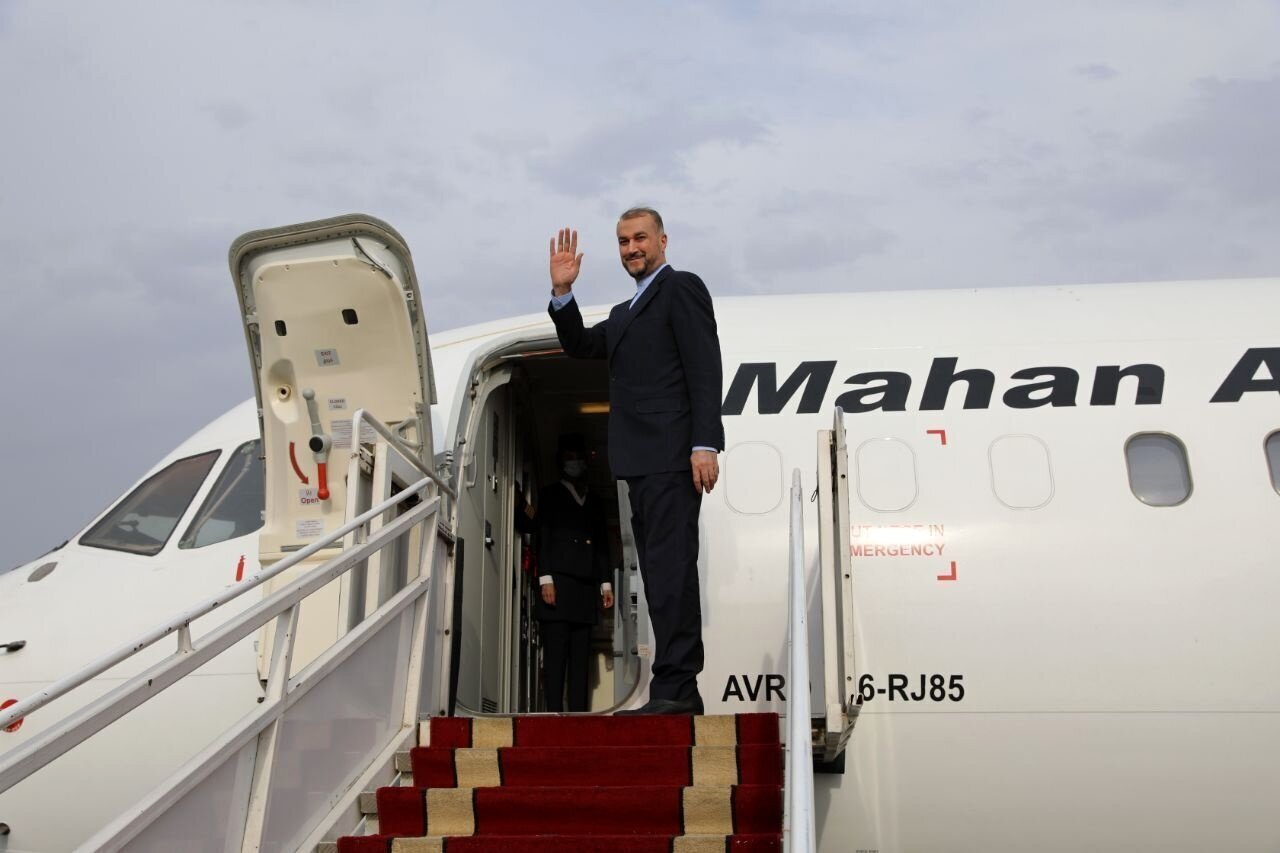TEHRAN- Officials in Pakistan announced on Friday that the Iranian foreign minister will visit the country next week, just days before the current government's term ends.
Hossein Amir Abdollahian is expected in Islamabad on August 3.
According to authorities, the planned visits of foreign dignitaries, despite the coalition government’s final days, indicate the administration’s effective foreign policy.
According to sources, the Iranian foreign minister will meet with Prime Minister Shehbaz Sharif on August 3 and begin official negotiations with his Pakistani counterpart Bilawal Bhutto Zardari in Islamabad.
Later, on August 4, he will travel to Karachi alongside Zardari to launch several projects.
The Iranian foreign minister’s visit comes only days after Pakistani chief of the army staff (COAS) Asim Munir visited Tehran.
General Asim, who made his first journey to neighboring Iran, held talks with Iran’s armed forces chief of staff and the air force commander. Pakistan’s top military officer also met the Iranian president and foreign minister.
On the agenda were important topics, including terrorism and border security.
The Pakistan’s Inter-Services Public Relations (ISPR) described the army chief’s visit as a success in a statement.
“During his visit, the COAS had detailed meetings with the military leadership of Iran, including Chief of General Staff of Armed Forces Major General Mohammad Bagheri,” according to the military’s media wing.
The military leaders of the two sides concurred that terrorism posed a threat to their respective nations and the region as a whole.
By exchanging intelligence and taking decisive action against the terrorists’ networks, they committed to end the threat of terrorism in border regions and look into ways to improve their collaboration in the security field.
The importance of bilateral ties between Pakistan and Iran for maintaining peace and stability in the region was brought up during the negotiations.
Back in June, Rear Admiral Shahram Irani, the commander of the Iranian Navy, visited Islamabad for a three-day visit to discuss avenues to strengthen bilateral collaboration in a number of military domains with top military commanders of Pakistan.
Irani visited Islamabad at the request of his Pakistani counterpart Admiral Muhammad Amjad Khan Niazi’s request.
Irani, who was accompanied by a senior military team, visited naval headquarters in Islamabad, where he was greeted by his Pakistani counterpart and witnessed a guard of honor, according to a Pakistan Navy press release.
The Iranian and Pakistani navy commanders met to discuss common interests such as bilateral marine and educational cooperation.
Additionally, Irani and Niazi discussed regional partnerships and marine security in the region.
Niazi briefed Irani and his accompanying team on the professional activities of Pakistani naval forces to maintain maritime security and bolster bilateral and multilateral cooperation.
In the meanwhile, Irani and Pakistani Air Force Chief Marshal Zaheer Ahmed Baber Sidhu met. They emphasized the value of strengthening military, educational, and aviation cooperation.
In a statement, Pakistan’s Air Force said, “The meeting between Irani and Baber Sidhu is a testament to the deep-rooted friendship and unwavering commitment of the two nations to work towards a peaceful and stable region.”
Pakistan-Iran relations have been strained in the past due to regional competition between Tehran and Riyadh.
However, the geopolitical situation has shifted significantly since China engineered a historic reconciliation between Iran and Saudi Arabia in March.
Since then, the two regional powers have reestablished diplomatic contacts and agreed to take further efforts to enhance their relationship.
Pakistan directly benefits from the Iran-Saudi reconciliation since Islamabad previously struggled to maintain a delicate balance.
Pakistan and Saudi Arabia have a long history of strategic cooperation, which Iran regards with distrust.
However, with Iran and Saudi Arabia resolving to bury the past, Pakistan views this as a golden chance to strengthen not just security but also economic ties with Iran.
To counteract the effects of Western sanctions on Tehran, Pakistan has decided to engage in trade-related barter with Iran and other nations in the region.
China is crucial to the change because it is using its clout to develop ties between Iran and Pakistan.


No comments:
Post a Comment